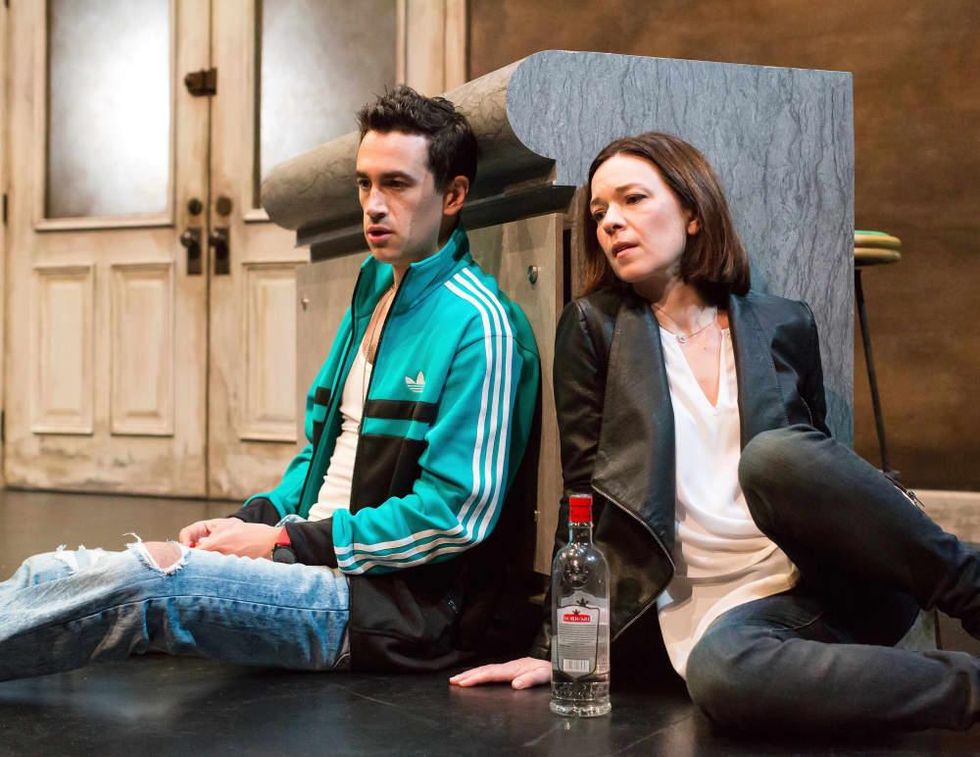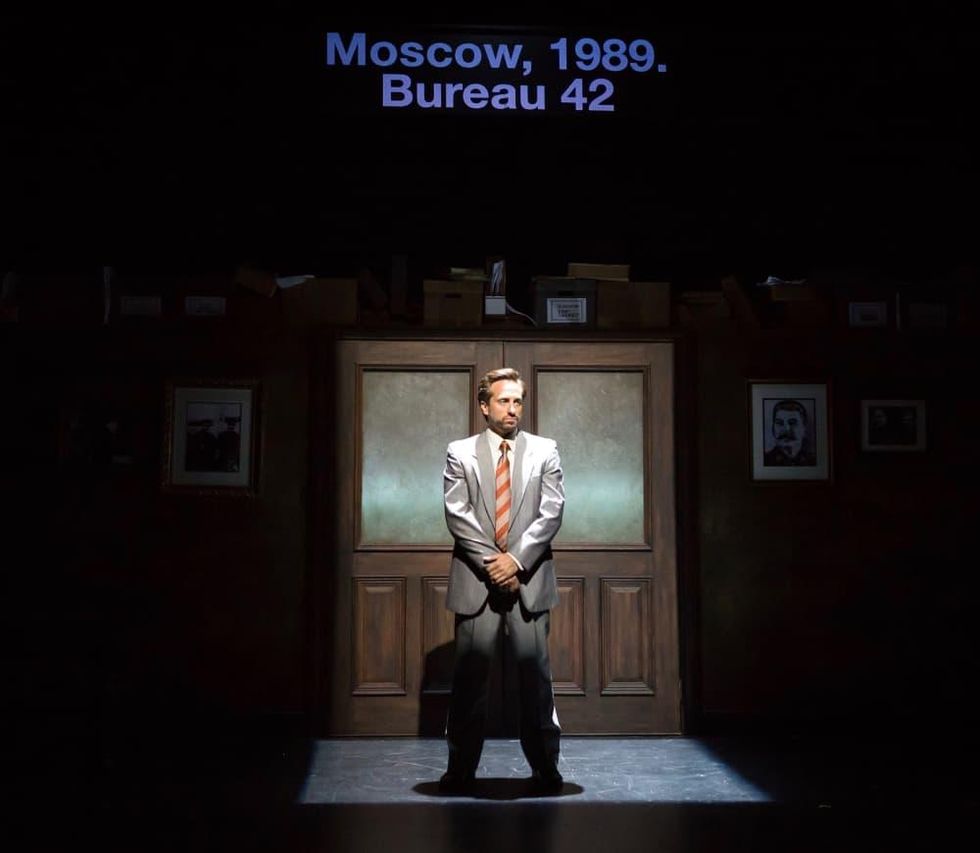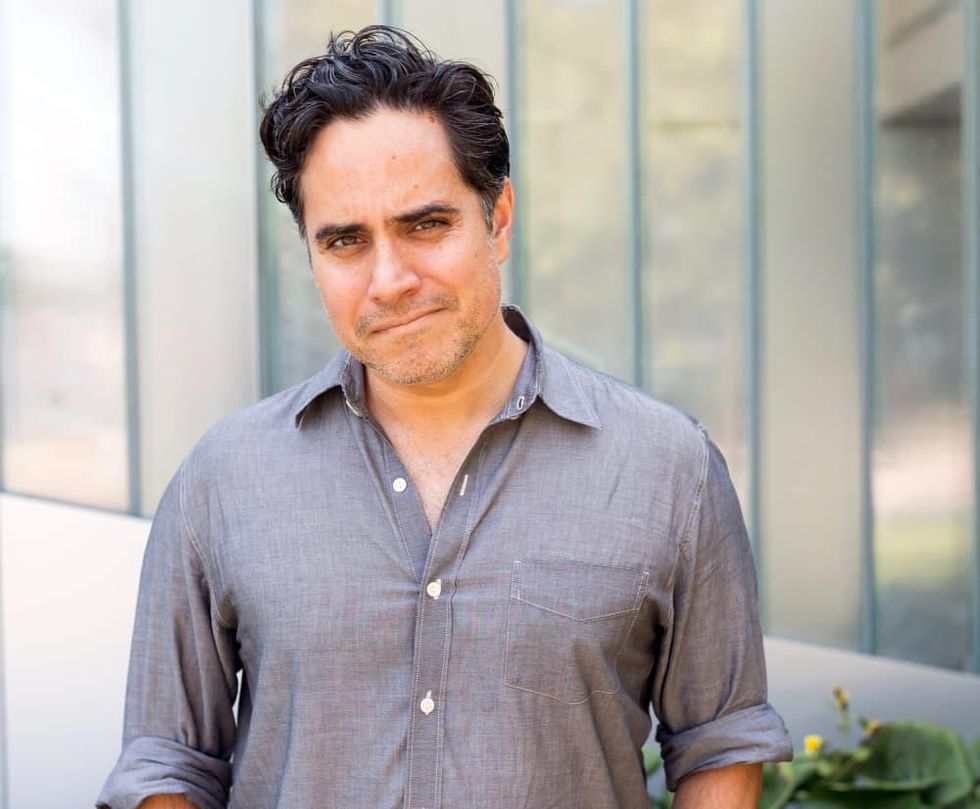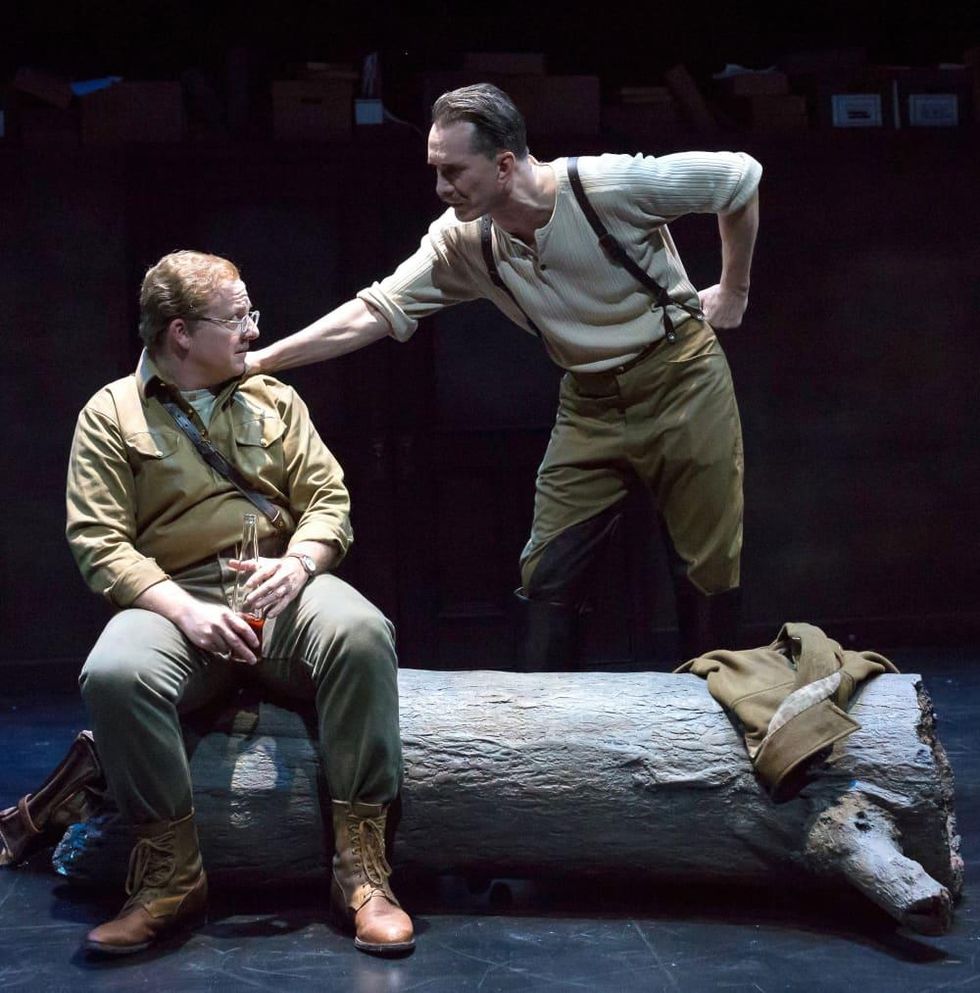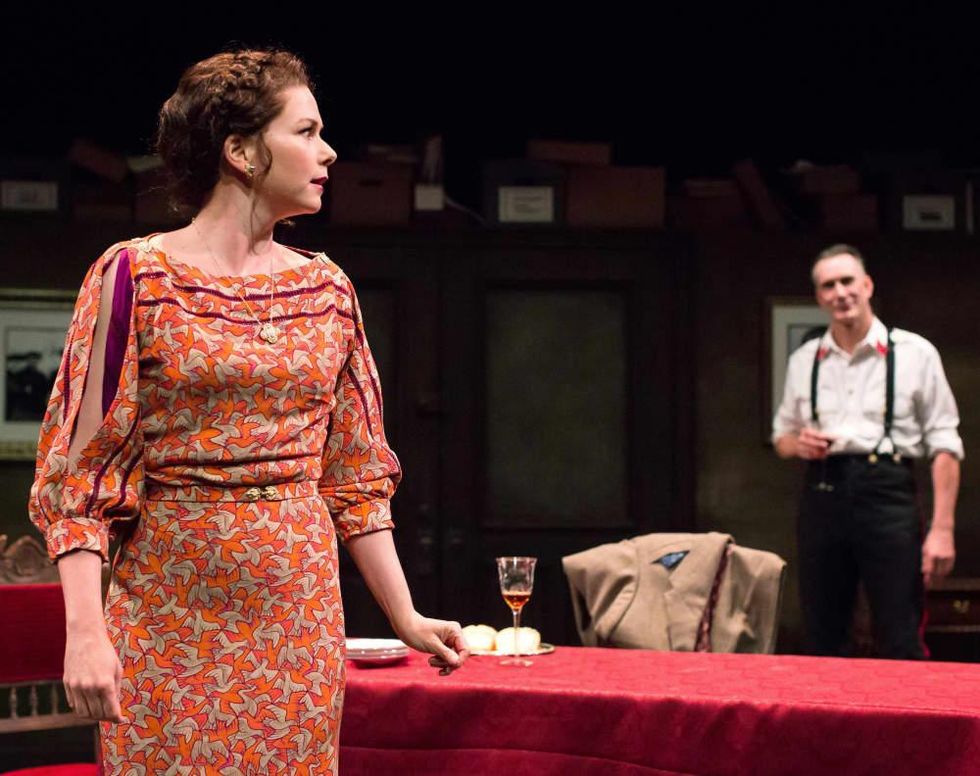After the Storm
Alley Theatre braves the storm and overcomes obstacles to debut world premiere of Describe the Night
The stage was set, a full set built, the actors in late rehearsal and then Hurricane Harvey stormed unto the Houston stage and it looked as if the Alley Theatre’s world premiere of acclaimed playwright Rajiv Joseph’s Describe the Night would never see the light of day, or at least stage lights. Yet, with a deus ex machina that is the Alley and Houston arts tenacity, the show has not only gone on but now thrives, giving Houston audiences a first look at a play likely to make New York waves when it soon hits Off Broadway.
I recently had a chance to talk to Joseph shortly before Describe the Night’s debut at its last-minute replacement stage, the University of Houston’s Quintero Theatre, and to hear the incredible story of the play’s survival and transformation.
Historical Connections
Commissioned by the Alley and scheduled as the first production, and the first of three world premieres, for the 2017-2018 season, Describe the Night weaves together Russian historical figures, one very surprising contemporary world stage player, real wars and tragedies with fictional characters, even threading in bits of comedy and magical realism. (Audiences might never look at a bowl of any traditional, homemade soup the same way again.)
In college, Joseph became drawn to the writings of Russian journalist and playwright Isaac Babel’s work, and especially to the diary he wrote while covering the Polish-Soviet War of in 1920. Joseph saw the theatrical possibilities of Babel’s biography, but he never set his ideas into a play until years later when he read accounts and later conspiracy theories about the 2010 Polish Air Force plane crash near Smolensk, Russia, which killed many members of the Polish government.
“I thought wow there’s this weird connection between these two events 90 years apart. That was what made me think: if there’s a play here it’s got to be super ambitious and unexpected.”
He began workshopping the daunting material with graduate student actors at NYU, knowing it wasn’t ready for a full production. Then the Alley came calling. Having world premiered two of his earlier plays, Gruesome Playground Injuries and The Monster at the Door, they now wanted to commission a new play.
“I said, 'How about a play that I have no idea what it’s about?' ” recalls Joseph of his initial pitch. “It’s about the Smolensk crash and Isaac Babel and I’m going to be developing it with students at NYU. Do you think this might be something you’re interested in?,” he asked all the while thinking the Alley would say, no, or even “That doesn’t make any sense." But, instead, they were very supportive.
The Alley invited Joseph to continue work on the script as a part of last year’s Alley All New reading festival, and later announced its world premiere production on the Neuhaus stage for this season.
Hurricane on the Horizon
Fast forward to late August when Joseph was staying downtown as the play went into rehearsals, continuing to make changes, so he had a front row seat when Harvey hit. In fact, he filmed one of the first videos to hit YouTube of the flood water inundating the theaters.
“When mother nature decides to take back what’s her’s, there’s precocious little we can do to prevent that,” he says of his thoughts surveying the scene, thinking that was it for this production of his play, but much more concerned for the cast, crew and theaters.
A few days later when the rains finally stopped, and he toured the waterlogged Neuhaus, Alley managing director Dean Gladden told Joseph, to his great astonishment, that they had already found an alternate space.
“Coming out the other side of this now, I have nothing but gratitude for the way not only the Alley Theatre but the city of Houston has responded,” he describes. “While harrowing at times for everyone involved, especially for many of the Alley staff members who suffered damage to their homes, this has been an inspiring experience for me just to be a part of it and to watch these people in action. I feel very lucky.”
A Timely Foretelling
Yet as remarkable as Describe the Night’s journey to a Houston stage is, the stories within the play certain rival the behind the scenes tale.
When I saw Describe the Night, a play filled with Russian spies, propagandists and powerful people plotting to manipulate the recording of history and the reshaping of news, I almost wondered if Joseph has as much of a talent for fortune telling as one of the play’s mysterious main characters. Knowing he began writing the play years ago, I had to ask what he knew then that many of us did not.
“Nothing. I didn’t know anything. I was simply following what was fascinating to me,” he explained with a laugh. “Even a year ago, as I was writing it, it didn’t seem like it was so timely, and then a few months later it just became that because of the way our world changed since the election, the way that Russia is in our headlines and the way that fake news and the concept of fake news has become such an issue and point of contention politically in the world. That’s what I was writing about in some ways all along.”
When I asked Joseph what kind of balance he needs to create when dramatizing historical events and merging created characters into that history, he compared it to an abstract painting.
“We understand that visual art can be abstracted and can play with fact and fiction in a way that gets to a deeper truth of the matter. That’s what I’m doing when I write these plays that are based in history. I’m not providing a history lesson to the audience, but I’m providing an abstraction of the historical tale that hopefully illuminates.”
Even as the play depicts European history, it will likely become part of our city’s history, another story we tell of surviving and continuing to create after the storm. And as Harvey changed us, it also altered Describe the Night, perhaps making it stronger.
While in early rehearsals at the Neuhaus, Joseph struggled to find the exact way to end the first act. After Harvey and the move to the UH space, scenic designer Tim Mackabee had to create an entirely new set and suddenly there was a large door upstage that hadn’t existed in the Neuhaus set, a door that inspired Joseph.
“That door became the key to unlocking the end of the act and that just wouldn’t have happened if we had had our originally set. Harvey gave us a door, a door to the answer.”
Describe the Night runs through October 15 at the University of Houston's Quintero Theatre.
